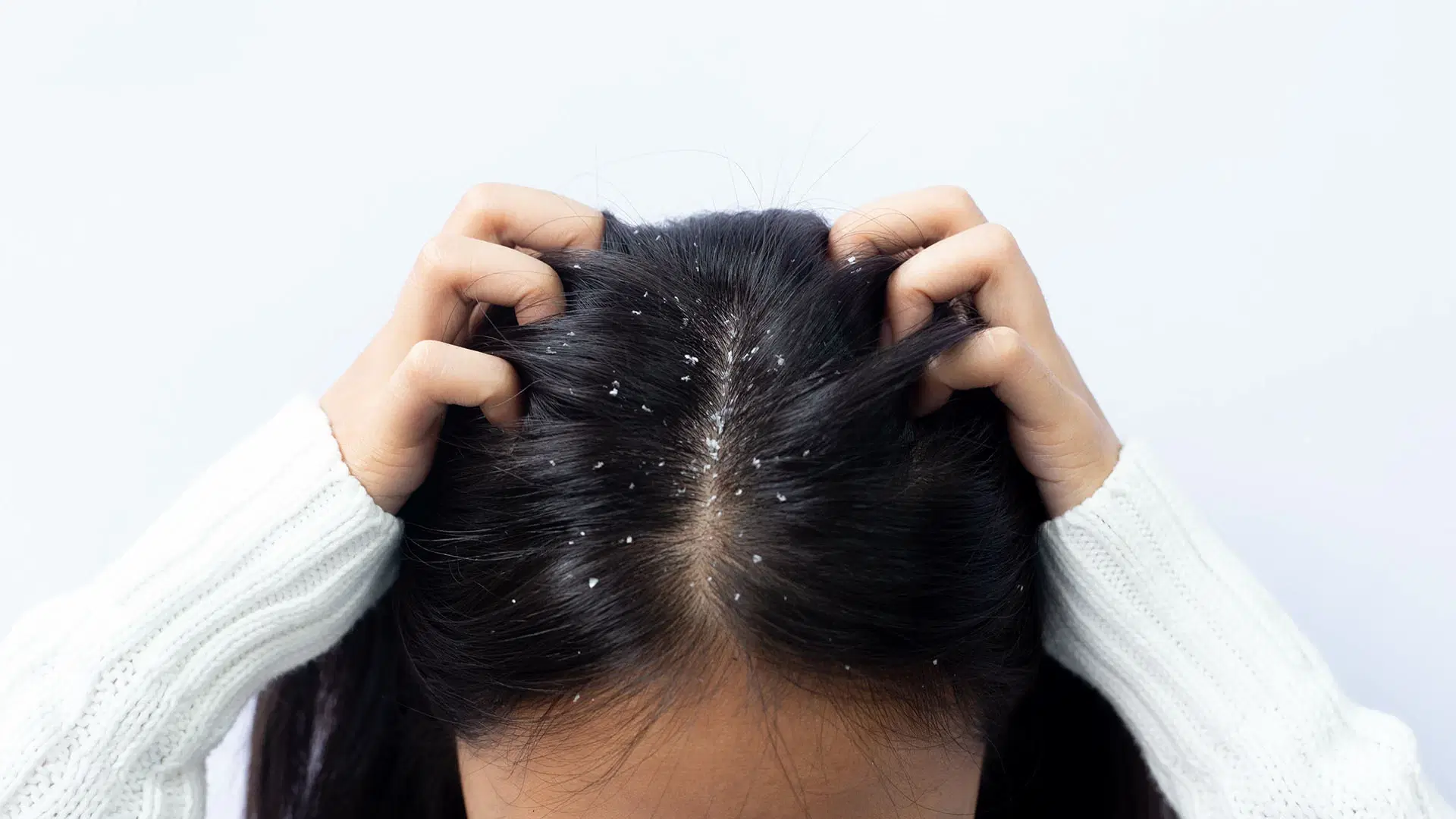
Beauty & Skincare
•04 min read
-9872eb55-9af0-4022-8644-bd8f05e8333e.png&w=3840&q=75)
Dandruff is a common scalp concern that leaves many feeling frustrated and unsure about the right remedies. In this post, we will clearly explain what dandruff is, explore effective treatments and natural cures, and share simple daily practices to maintain optimal scalp health. By reading on, you will gain practical tips for dry scalp treatment, learn why an anti-dandruff shampoo might be right for you, and discover scalp exfoliation and hydration tips that fit smoothly into your hair care routine.
Dandruff is best recognized by its white or yellow flakes that appear on the scalp, accompanied by itching and discomfort. It occurs when the natural balance of the scalp is disrupted. One of the primary culprits is the overgrowth of a yeast-like fungus. The imbalance in the scalp’s microbiome can be due to several factors, ranging from natural dryness to conditions such as seborrheic dermatitis. These issues can lead to an irritated scalp and visible flaking, making dandruff a persistent concern.
There are several reasons why dandruff might develop. Consider the following factors:
Fungal Overgrowth: The excessive growth of certain fungi can upset the natural scalp environment.
Dry Scalp: Inadequate moisture on the scalp can lead to flaking that is often mistaken for dandruff.
Seborrheic Dermatitis: A condition that results in redness, irritation, and many scales.
Product Build-Up: Overuse of styling products or certain shampoos may irritate the scalp.
Environmental Factors: Seasonal changes, especially cold and dry weather, can trigger or worsen flaking.
Many find success with over-the-counter solutions specifically designed as anti-dandruff shampoo. Such shampoos often contain beneficial ingredients that help clear fungal overgrowth, reducing flake buildup. Additionally, incorporating scalp exfoliation into your routine can assist in removing dead skin cells and minimizing clogs that worsen dandruff. Regular use of these treatments has been known to create a noticeable improvement in scalp health.
Cultivating natural dandruff cures can be a gentle yet effective option for many. Natural ingredients work in harmony with your skin, offering relief while supporting overall scalp health. For instance, tea tree oil is cherished for its natural antifungal properties that may alleviate fungal overgrowth. Aloe vera is another popular remedy, providing soothing hydration that reduces irritation. Apple cider vinegar, with its ability to balance pH, further supports fending off fungal development, making it a natural ally in your hair care for dandruff regimen.
-5ba1f1f6-995b-4617-a1ff-43890351cff7.png&w=3840&q=75)
For those dealing with an itchy scalp, additional remedies can offer quick relief. Cooling shampoos infused with menthol provide an immediate soothing effect on the scalp. Applying coconut oil not only moisturizes but also serves as a calming treatment to ease discomfort. Remember, avoiding excessive scratching is crucial as it can lead to further irritation and inflammation. These remedies, paired with proper scalp hydration tips, aim to soothe and balance your scalp effectively.
Establishing a consistent hair care routine is essential for dandruff prevention. Start by washing your hair regularly with a mild anti-dandruff shampoo. This helps keep product build-up to a minimum, reducing scalp irritation. In addition, always rinse your hair thoroughly to prevent leftover chemicals from causing a flaky scalp. By focusing on simple, daily maintenance practices, you can keep your scalp cleaner and healthier over time.
Boosting scalp health involves both external care and internal balance. Simple practices like massaging your scalp not only promote better blood circulation but also aid in the renewal of scalp skin cells. Incorporating lightweight oils or hydrating masks into your regimen can make a significant difference by delivering ongoing scalp hydration tips. Protecting your scalp from harsh weather with accessories like hats or scarves further supports a long-term flake-free lifestyle.
Lifestyle habits also play a critical role in managing dandruff. A balanced diet rich in zinc, omega-3 fatty acids, and biotin can support overall scalp health. Regular hydration helps maintain moisture in the skin, preventing dryness, which is a common trigger for dandruff. When you combine thoughtful eating habits with proper scalp care, you empower your body to naturally fend off scalp issues.
Stress is another important factor that can aggravate dandruff symptoms. Engaging in activities like yoga, meditation, or light exercises helps manage stress levels and subsequently reduces flare-ups. If you find that general remedies for an itchy scalp or dandruff prevention methods are not enough, seeking advice from a dermatologist is a wise step. Persistent dandruff might signal underlying skin conditions that require specialized treatment.

Pro Tip: Combat Dandruff with Scalp Exfoliation
Did you know that regular scalp exfoliation can significantly reduce dandruff? By removing dead skin cells and product build-up, you allow anti-dandruff treatments to work more efficiently, leading to improved scalp health. Try using a gentle exfoliating scrub or a specially designed brush for your scalp once a week for the best results.
Dandruff develops due to a mix of factors such as fungal overgrowth, dry scalp conditions, seborrheic dermatitis, and sometimes product build-up or environmental triggers.
You can try using natural dandruff cures like tea tree oil, aloe vera, and apple cider vinegar. Incorporate anti-dandruff shampoo, scalp exfoliation, and proper scalp hydration tips into your routine.
While dandruff itself does not damage hair, constant scratching can stress hair follicles, potentially leading to hair thinning over time.
Dandruff involves flaking due to factors like fungal growth, while a dry scalp is simply a result of insufficient moisture, though both can cause similar symptoms.
Dandruff often requires ongoing management due to recurring triggers. With regular care and prevention methods, however, you can keep it under control.
Managing dandruff is all about understanding its causes and consistently applying effective care practices. By incorporating anti-dandruff shampoos, natural remedies, and daily scalp care routines, you can significantly improve your scalp health. Remember that simple changes in your lifestyle and relieving stress also contribute to a healthier scalp. Continue exploring more insightful tips and beauty care advice to maintain a stylish and confident you.